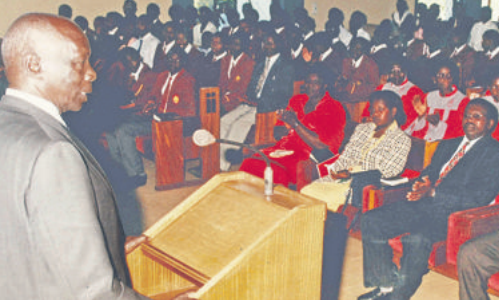
Soft, slow, symphonic coos pierce through the humongous AIC Kabarak Chapel, signalling the morning worship session. The mellow hymns emanating from the chapel are soothingly unrivalled - well choreographed worship songs.
Here, even bells do not disturb hundreds of students who swarm the church on Wednesdays, Thursdays and Fridays for praise and worship sessions. They are programmed. They do not step in a minute late. “It is just discipline, morals and respect that guides the students. They stick to the rules and do not come in a minute late.